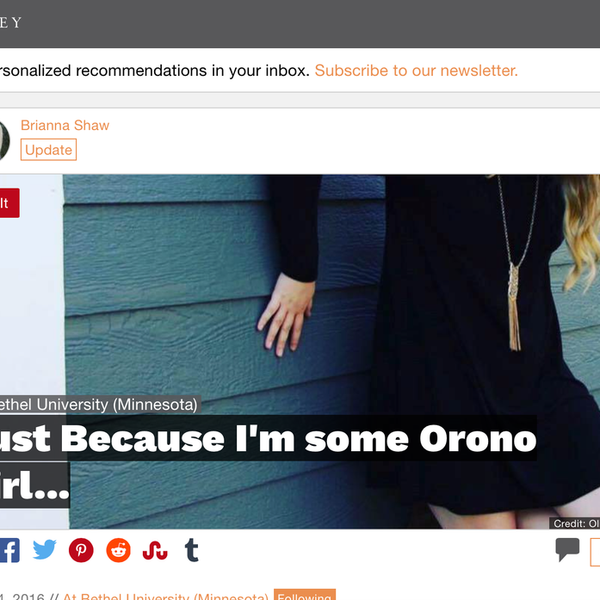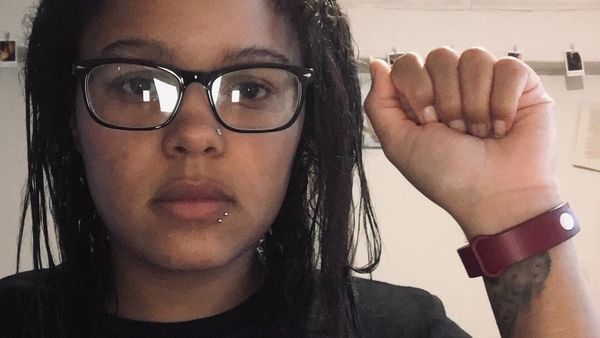We have a problem with race. We, Americans, are still grappling with the duality of our country’s paradoxical origin. Liberty and justice for all is what we have been taught, but women, Blacks, Native Americans, and many other minority groups were denied and still are denied access to that ephemeral American dream. I would like to address the concept of “progress”. Many times I have heard someone try to dismiss me by saying, “At least legal discrimination is gone” or “We’ve made so much progress since the 1960s, why are you still upset?”. Yes, legal discrimination is gone, but I believe that the core issue, the thoughts and hearts of people, has gone unaddressed and largely untouched.
And I saw first-hand how far we have to go addressing the mentality of racism, on a high school trip to Gettysburg.
The Battle of Gettysburg was fought on July 1-3, 1863, between the Union, led by General G. Meade, and the Confederate States, led by Robert E. Lee. The two forces clashed in and around Gettysburg, Pennsylvania in what is considered the turning point and key victory for the Union. Our class took a field trip to Gettysburg National Military Park. We were learning about the Civil War at the time, and what better way to learn than to actually go to the site of a Civil War battle. I think many of us were just excited to have a day off from classes. We took two chartered buses to the park. Most of my close friends got on the first bus. I got on the second one, and because of this, I ended up sitting by people I did not know very well. I was stuck in the window seat, sitting next to a white peer of mine. We did not know each other very well. We had played on the football team together during our freshman year, but that was pretty much the extent of our interaction. Behind him, sat one of our key basketball players, another one of my white peers, whose height made him a force to be reckoned with on the court. Behind me sat one of my closer acquaintances, a star on our girls’ lacrosse team. She was biracial, one of her parents was Chinese, the other white.
We departed on the two-hour drive to the park. I read the short book they had assigned for us to read on the battle, and then watched some of Ken Burns’ Gettysburg documentary they were playing for us. I eventually became bored and looked out the window. I distinctly remember the sign that demarcated the Mason-Dixon line. It shocked me for a brief moment, because I was reminded that the cosmopolitan suburb that I lived in still laid in territory that belonged to Confederacy and to Jim Crow. I wondered what Alexandria was like in the 1800s and 1960s. I eventually grew tired and closed my eyes. I cannot sleep on buses, unless I am exhausted, so I just sat there with my eyes closed, listening to the sound of the bus and the chatter of my peers.
Suddenly, I was jerked awake by something so ridiculously racist, I thought I was being pranked. “Oh, so you made out with a Black? You’re so gross. You know they have diseases right?” Laughter. I looked to the right of me. The two white guys closest to me, were joking with my Asian friend. She had been seeing one of my Black friends. “Ugh. I can’t believe you did that. That’s so disgusting.” More laughter. I was in shock. Were they really saying this? Did they not see me sitting next to them? Did they simply not care? My friend told them to cut it out, in a joking, unserious manner. It was obvious she did not care. “Okay, but seriously their lips are so big, how did you even manage to kiss him?” I still could not believe they were having this discussion. “How did it taste?”
I sat there listening to a display of bigotry, racism, and ignorance, I had only seen in documentaries about the Civil Rights movement. I did not immediately stop this conversation, but let it go on for 10 to 15 minutes. Yes, for 10 to 15 minutes, this “joking” went on and on. I do not know why I let it continue for that long. I do not like to be confrontational, that certainly played a role in my hesitance to shut them down. I also hoped, naively, that one of them would see what was wrong with their actions, and would check the others. (I was hoping my Asian-American friend would check them both, but I have learned that not all people of color stand in solidarity with each other).
Their words became too much, and I spoke up. Choking back tears of anger, I managed to protest their words. It was not a forceful protest, but it was enough to make the three remember that I had been sitting and listening to this whole conversation.
“Oh. We’re sorry,” was the half-hearted response.
We’re sorry. We’re sorry??? Never in my life, did I ever hear such a disingenuous, sad, excuse. I was furious but said no more. They were not sorry. They would never be sorry. No matter what I did, no matter how much I spoke, how much I advocated, how patient I was explaining to some of my peers the concept of race, they would never understand what I was talking about. They would never try to be accepting. I was hurt, but could not show it. I knew no one on that bus would be able to empathize with me or even understand what was wrong.
We arrived at Gettysburg. I cannot recall any important event we were taught, except for some tidbits about the different type of cannons. My mind was focused on the incident on the bus. Had they really forgotten I was sitting beside them? Were those the kind of conversations they had with their parents? Was that what Ralph Ellison’s ‘Invisible Man’ felt like as he moved through life? The tour ended. We had lunch at the local McDonalds. Before we got back on the bus, we stopped in the gift shop. My white friends convinced one of my Black friends to wear Confederate garb and took a photo of him, laughing while they did it. The kid I was sitting next to on the bus, bought a large Confederate flag. He stood in the back of our bus and sang “Hail To The Confederacy” over and over. Most people laughed, some uncomfortable with display. Nobody said anything. A friend of mine, a staunch conservative with whom I had many debates, called my name and pointed to my peer with the flag. “Check this out! Isn’t he hilarious?” He was completely sincere. He really thought that I would be amused by this. I shot back that in no way did I find it funny. I sat and stared at the seat in front of me. I was angry. I was angry at my peers who felt they could flippantly spew racist remarks, while I sat right next to them. I was angry at those who sat by passively. I was angry at my Asian-American friend for letting this hate go unchecked. She must have felt it was not pertinent to her. I was angry at my Black friend for being so passive, cooning for his white friends in that picture. I was angry that my conservative friend thought I would find the Confederate flag amusing. I was angry at everyone for pretending we had made racial progress. We headed back to Alexandria.
I thought about this field trip a lot. Ultimately, I think that it is one big ironic day in my life. We all took a trip to the site of the Battle Of Gettysburg, fought for the preservation of the Union and the destruction of slavery. And somehow, this trip brought out some of the most virulent, hateful sentiments I have ever heard. For a brief moment, the curtain was lifted and I saw what has been dubbed “the silent majority”. Those men and women everywhere, who still hold onto that bigotry and hate that the Union was fighting against in the late 1800s. That mindset never went away, it simply took different forms. It does not matter if you are wealthy, like my peer who played lacrosse, or associated with many Black people, like my peer who played basketball, or even are another person of color, like my Asian friend. That bigotry can still be present. When I hear the talk of how millennials are “progressive”, I cynically roll my eyes. Just because we are “young folks”, it does not mean we do not have our share of racists and bigots. I know. I went to school with some of them.




















